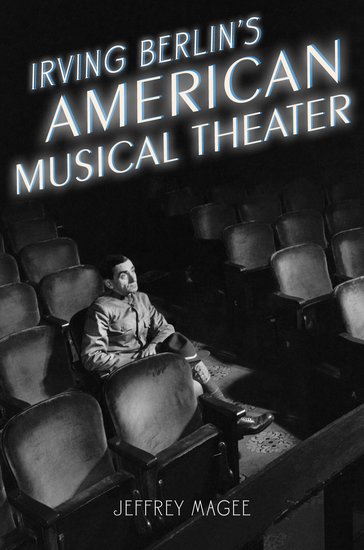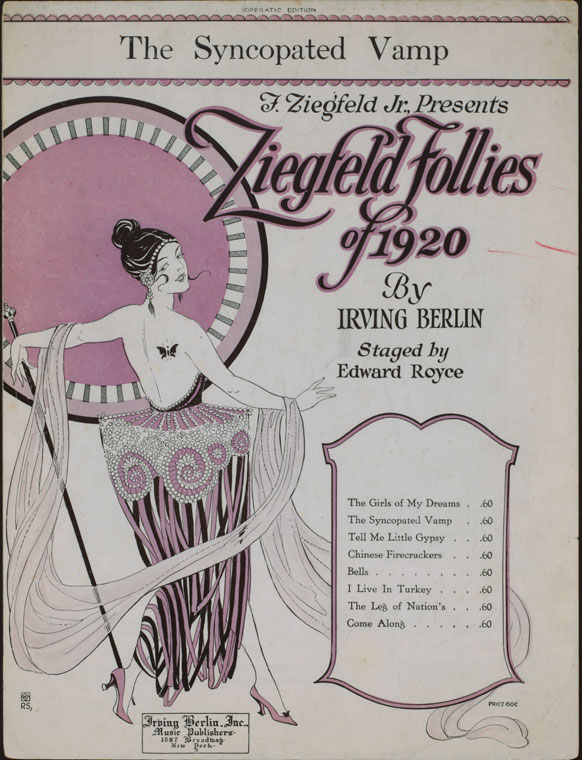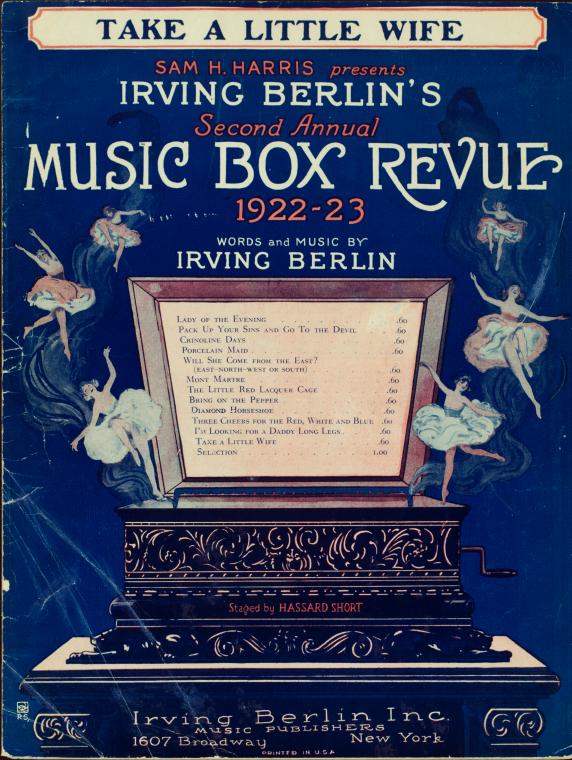By Jeffrey Magee and Benjamin Sears
On 11 May 1888, somewhere outside Mogilyov in Belarus, Irving Berlin was born. The son of a poor Jewish family who fled the pogroms to New York City, Berlin went on to pen some of the most memorable American classics from the patriotic “God Bless America” to wistful “White Christmas.” Without any formal training in music composition or even the ability to notate melodies on a musical staff, he took a knack for music and turned it into the most successful songwriting career in American history. Jeffrey Magee, author of Irving Berlin’s American Musical Theater, and Benjamin Sears, editor of The Irving Berlin Reader, composed this quiz to celebrate the composer’s life and work.
1. Name the song that Berlin called “a publishing house in itself.”
A. “Alexander’s Ragtime Band”
B. “Blue Skies”
C. “White Christmas”
D. “There’s No Business Like Show Business.”
2. Name the show that Berlin called “the best thing I was ever connected with.”
A. Annie Get Your Gun
B. This Is the Army
C. The Ziegfeld Follies
D. The Music Box Revues
3. About whom did Berlin say, “I’d rather have ______ introduce one of my songs than any other singer I know — not because he has a great voice, but because his diction and delivery are so good that he can put over a song like nobody else”?
A. Fred Astaire
B. Bing Crosby
C. Irving Berlin
D. Al Jolson
4. Which song did Berlin write mainly to cover a scene change in Annie Get Your Gun?
A. “They Say It’s Wonderful”
B. “Doin’ What Comes Natur’lly”
C. “There’s No Business Like Show Business”
D. “You Can’t Get a Man with a Gun”
5. Who said “Irving Berlin’s lyrics made a lady out of me”?
A. Ethel Merman
B. Ginger Rogers
C. Ella Fitzgerald
D. Ethel Waters
6. In the 1933 revue As Thousands Cheer, what song did Ethel Waters sing under a headline projected above the stage that read “Unknown Negro Lynched by Frenzied Mob.”
A. “Heat Wave”
B. “All Alone”
C. “What’ll I Do?”
D. “Supper Time”
7. Which Broadway theater was built in 1921 to present the songs and shows of Irving Berlin?
A. New Amsterdam
B. Music Box
C. Winter Garden
D. Palace
8. What Berlin hit was premiered in a Rodgers & Hart show?
A. “All Alone”
B. “Blue Skies”
C. “Oh, How I Hate to Get up in the Morning”
D. “Simple Melody”
9. Berlin’s “Smile and Show Your Dimple” was the source for what later Berlin hit?
A. “White Christmas”
B. “Always”
C. “Easter Parade”
D. “What’ll I Do?”
10. What was Berlin’s first “catalogue” film?
A. Top Hat
B. Easter Parade
C. Holiday Inn
D. Alexander’s Ragtime Band
11. For what show did Berlin write “God Bless America”?
A. As Thousands Cheer
B. Yip Yip Yaphank
C. Stop! Look! Listen!
D. Face the Music
12. What Berlin film was such a disaster that he forbade mention of it for the rest of his life?
A. Carefree
B. Second Fiddle
C. Puttin’ on the Ritz
D. Reaching for the Moon
ANSWERS BELOW…
AND NOW THE ANSWERS…
1. Name the song that Berlin called “a publishing house in itself.”
C. “White Christmas”
2. Name the show that Berlin called “the best thing I was ever connected with.”
B. This Is the Army
3. About whom did Berlin say, “I’d rather have ______ introduce one of my songs than any other singer I know — not because he has a great voice, but because his diction and delivery are so good that he can put over a song like nobody else”?
A. Fred Astaire
4. Which song did Berlin write mainly to cover a scene change in Annie Get Your Gun?
C. “There’s No Business Like Show Business”
5. Who said “Irving Berlin’s lyrics made a lady out of me”?
A. Ethel Merman
6. In the 1933 revue As Thousands Cheer, what song did Ethel Waters sing under a headline projected above the stage that read “Unknown Negro Lynched by Frenzied Mob.”
D. “Supper Time”
7. Which Broadway theater was built in 1921 to present the songs and shows of Irving Berlin?
B. Music Box
8. What Berlin hit was premiered in a Rodgers & Hart show?
B. “Blue Skies”
9. Berlin’s “Smile and Show Your Dimple” was the source for what later Berlin hit?
C. “Easter Parade”
10. What was Berlin’s first “catalogue” film?
D. Alexander’s Ragtime Band
11. For what show did Berlin write “God Bless America”?
B. Yip Yip Yaphank
12. What Berlin film was such a disaster that he forbade mention of it for the rest of his life?
D. Reaching for the Moon
Jeffrey Magee is Associate Professor of Music and Theater at the University of Illinois, Urbana-Champaign, and author of Irving Berlin’s American Musical Theater and The Uncrowned King of Swing, winner of the Irving Lowens Award from the Society for American Music. Benjamin Sears is the editor of The Irving Berlin Reader. He is a singer who, with pianist Bradford Conner, specializes in the “Great American Songbook” in particular the songs of Irving Berlin. Sears & Conner have made four CDs of Berlin’s music together and lecture regularly on American songwriters and the great performers of their music.
Subscribe to the OUPblog via email or RSS.
Subscribe to only music articles on the OUPblog via email or RSS.
View more about Irving Berlin’s American Musical Theater on the ![]()
![]()
View more about The Irving Berlin Reader on the ![]()
![]()





Recent Comments
There are currently no comments.